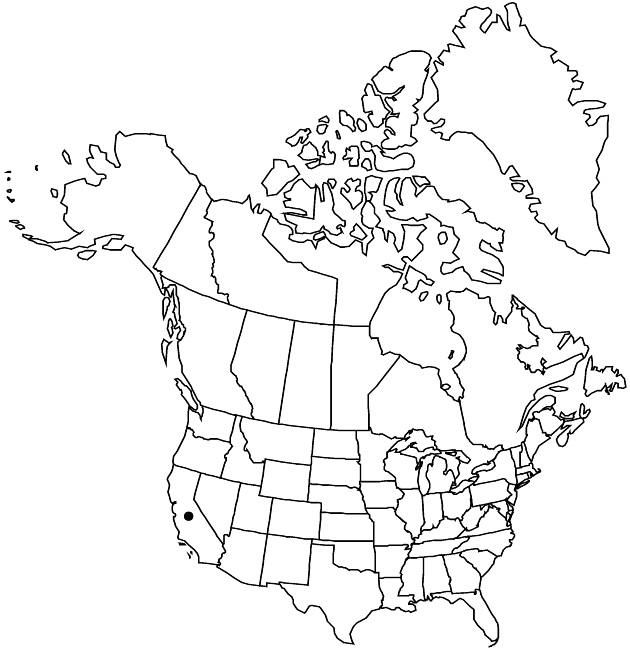Hulsea mexicana
in N. L. Britton et al., N. Amer. Fl. 34: 41. 1914.
Common names: Mexican alpinegold
Annuals or biennials, (20–)40–100 cm. Stems 1–3, glandular. Leaves mostly cauline; blades green, oblanceolate to spatulate, 5–14 cm, margins dentate, faces glandular-villous; distal cauline leaves broadly oblanceolate to ovate, gradually reduced. Heads 3–5. Involucres hemispheric, 15–27 mm diam. Phyllaries 8–12 mm, outer narrowly lanceolate, apices acuminate. Ray florets 20–35; corolla tubes glabrous; laminae yellow (narrowly elliptic to narrowly oblong-lanceolate), 10–12 mm. Disc corollas yellow. Cypselae 4–6 mm; pappus scales subequal, 1–2 mm. 2n = 38.
Phenology: Flowering late spring–summer.
Habitat: Common after fires, chaparral and woodlands
Elevation: 1000–1100 m
Distribution
Loading map...

Calif., Mexico (Baja California).
Discussion
In the flora area, Hulsea mexicana grows in southern San Diego County.
Selected References
None.
Lower Taxa
None.